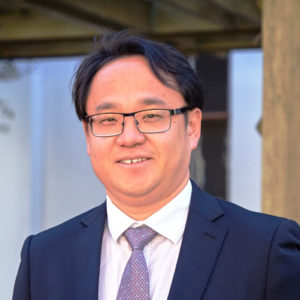T14: Terahertz Communications for 6G and Beyond Era
Organizer: Nan Yang, Australian National University, Australia
Organizer: Chong Han, Shanghai Jiao Tong University, China
Organizer: Josep Miquel Jornet, Northeastern University, USA
Abstract: Terahertz (THz) communications is envisioned as an enabling and highly promising wireless technology for the sixth generation (6G) and beyond wireless systems. In particular, the ultra-wide THz band ranging from 0.1 to 10 THz offers enormous potential to alleviate the spectrum scarcity and break the capacity limitation of emerging wireless systems (such as 4G-LTE and 5G). This will undoubtedly support the epoch-making wireless applications that demand ultra-high quality of service requirements and multi-terabits per second data transmission in the 6G and beyond era, such as terabit-per-second backhaul systems, ultra-high-definition content streaming among mobile devices, virtual/augmented reality, and wireless high bandwidth secure communications.
As 5G wireless networks are deployed and commercialized globally, the THz band is where fundamental scientific and engineering breakthroughs are expected to occur over the next decade. It is highlighted that THz technology has been identified by the Defense Advanced Research Projects Agency as “one of the four major research areas that could eventually have an impact on our society larger than that of the Internet itself”. Moreover, THz communications has recently been identified by the IEEE Communication Society as one of the nine communication technology trends to follow. Accordingly, rapidly increasing research endeavors have been devoted to THz communications over the past few years.
Against this background, this tutorial will introduce the fundamental knowledge, present the state-of-the-art progress, and discuss future research directions of THz communications, uniquely and significantly supporting the design and development of THz communications for the next generation wireless systems.

Bio: Nan Yang received his Ph.D. degree in Electronic Engineering from Beijing Institute of Technology in 2011. Since July 2014, he has been with the Australian National University, Canberra, Australia, where he is currently an Associate Professor at the School of Engineering and the Head of the Emerging Communications Laboratory. He received the Top Editor Award from the Transactions on Emerging Telecommunications Technologies in 2017, the Exemplary Reviewer Certificate of the IEEE Transactions on Communications in 2016 and 2015, the Top Reviewer Award from the IEEE Transactions on Vehicular Technology in 2015, the IEEE ComSoc Asia-Pacific Outstanding Young Researcher Award and the Exemplary Reviewer Certificate of the IEEE Wireless Communications Letters in 2014, and the Exemplary Reviewer Certificate of the IEEE Communications Letters in 2013 and 2012. Also, he is the co-recipient of Best Paper Awards at the IEEE Globecom 2016 and the IEEE VTC Spring 2013. He is currently serving on the Editorial Board of IEEE Transactions on Wireless Communications, IEEE Transactions on Molecular, Biological, and Multi-Scale Communications, IEEE Transactions on Vehicular Technology, and two other journals. He has also served as the Guest Editor of eight special issues in international leading journals, symposium/track chair at international flagship conferences such as IEEE ICC and IEEE Globecom, TPC co-chairs of eight workshops. He is a Senior Member of the IEEE. His current research interests include terahertz and millimetre wave communications, ultra-reliable and low-latency communications, cyber-physical security, massive multiple-antenna systems, collaborative and distributed signal processing, and molecular communications.
Bio: Chong Han has been with Shanghai Jiao Tong University, Shanghai, China since June 2016, where he is currently an Associate Professor and the Head of the Terahertz Wireless Communications (TWC) Laboratory. He obtained the Master of Science and the Ph.D. degrees in Electrical and Computer Engineering from Georgia Institute of Technology, Atlanta, GA, USA, in 2012 and 2016, respectively. He received 2019 Distinguished TPC Member Award, IEEE International Conference on Computer Communications (INFOCOM) and 2018 Elsevier NanoComNet (Nano Communication Network Journal) Young Investigator Award, 2018 Shanghai Chenguang Funding Award, and 2017 Shanghai Yangfan Funding Award. He is an editor of Nano Communication Networks (Elsevier) Journal and IEEE Access. He is a TPC Co-Chair or General Co-Chair for the 1st–4th International Workshop on Terahertz Communications, in conjunction with IEEE ICC 2019, Globecom 2019, ICC 2020, and ICC 2021. His current research interests include terahertz communications and electromagnetic nanonetworks. He is a Member of the IEEE.
Bio: Josep M. Jornet is an Associate Professor in the Department of Electrical and Computer Engineering at Northeastern University, in Boston, MA. He received the B.S. in Telecommunication Engineering and the M.Sc. in Information and Communication Technologies from the Universitat Politecnica de Catalunya, Barcelona, Spain, in 2008. He received the Ph.D. degree in Electrical and Computer Engineering from the Georgia Institute of Technology, Atlanta, GA, in 2013. His research interests are in terahertz-band communication networks, wireless nano-bio-communication networks, and the Internet of Nano- Things. In these areas, he has co-authored more than 160 peer-reviewed scientific publications, 1 book, and has also been granted 4 US patents. These works have been cited over 9,700 times (h-index of 44). Since July 2016, he is the Editor-in- Chief of Elsevier’s Nano Communication Networks Journal. He is serving as the lead principal investigator on multiple grants from U.S. federal agencies including the National Science Foundation, the Air Force Office of Scientific Research and the Air Force Research Laboratory. He is a recipient of the National Science Foundation CAREER award and of several other awards from IEEE, ACM, UB and NU. He is a Senior Member of the IEEE and Member of the ACM.
